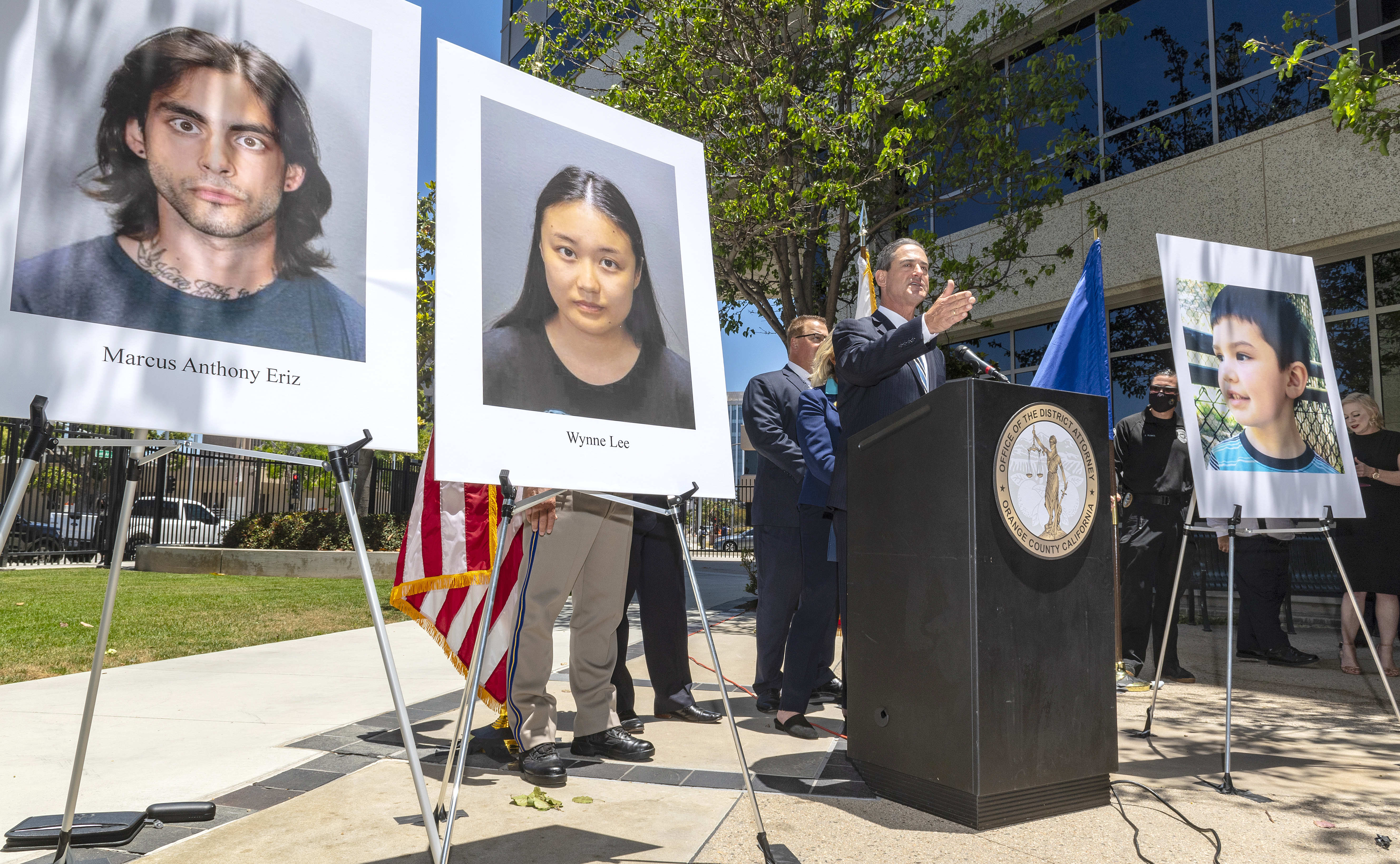
A 36-year-old man was convicted Tuesday of beating and strangling a woman to death before he and his brother allegedly dumped the victim's body in Irvine and set it afire 13 years ago.
Zenaido Baldivia-Guzman was convicted of murder, along with a special circumstance allegation of murder committed during a kidnapping. He faces life in prison without the possibility of parole when he is sentenced Feb. 24.
The defendant was previously tried in 2016, but it ended in a mistrial when jurors deadlocked 11-1 in favor of guilt on the first-degree murder charge.
The defendant's brother, Gabino Baldivia-Guzman, is awaiting trial.
Get Southern California news, weather forecasts and entertainment stories to your inbox. Sign up for NBC LA newsletters.
Zenaido Baldivia-Guzman is accused of killing the still-unidentified woman Sept. 5, 2009.
The body was found in the parking lot of a business at 1851 Kettering in Irvine about 8:30 a.m. when an employee headed into work spotted it, according to Senior Deputy District Attorney Robert Goodkin. The victim did not have any personal effects on her, but she appeared to be in her 20s and was about 6 feet tall and weighed 150 pounds.
The case went unsolved for a year until genetic material collected from the victim's left hand matched the DNA of the defendant, who had provided a genetic sample to resolve a misdemeanor domestic violence case in which he choked his girlfriend and threw her 9-year-old son against a wall when he tried to intervene, Goodkin said in court papers.
Local
Get Los Angeles's latest local news on crime, entertainment, weather, schools, COVID, cost of living and more. Here's your go-to source for today's LA news.
Irvine police placed the brothers under surveillance and arrested them following a traffic stop in November 2010, Goodkin said.
Zenaido Baldivia-Guzman initially told police he knew nothing about a murder and then said he was too drunk at the time of the incident to remember, Goodkin said.
When confronted with evidence, he "admitted certain things,'' Goodkin said in his opening statement of the trial.
The two brothers picked up the woman in a high-prostitution area of Santa Ana at First Street and Harbor Boulevard the night of Sept. 4, 2009, Goodkin said.
"The evidence will show you (the defendant) was hiding in the back of the van and she doesn't see him,'' Goodkin said.
When the victim notices Zenaido Baldivia-Guzman in the back of the van, while the defendant's brother was driving, she, "starts screaming, 'Let me out of this van,''' Goodkin said. "She doesn't want to be in a van with two guys. That wasn't part of the deal.''
The defendant pulled her into the back of the van as she shouted for help, Goodkin said. As she fought back, the defendant "hits her in the face and hits her hard,'' Goodkin said, adding, "he hits her till she's quiet.''
The defendant admitted that he "squeezed a little bit'' around her neck, but evidence shows the victim was strangled, Goodkin said.
"She didn't die from blunt force trauma to the face,'' the prosecutor said.
The brothers drove around for about 90 minutes before settling on a secluded place in an industrial area of Irvine to dump the body, Goodkin said. The two brothers, who were in the auto detailing business, had gasoline in the van that Gabino Baldivia-Guzman allegedly used to help ignite the body, the prosecutor said.
Zenaido Baldivia-Guzman did not help set fire to the body, but he didn't do anything to stop his brother, Goodkin said.
"They do not want to be caught with this crime,'' so the body was burned to conceal evidence, Goodkin said.
The victim's DNA was found "under (the victim's) fingernails,'' he said.
"There was no soot in her lungs,'' indicating that the victim was already dead when she was set afire, Goodkin said.
Zenaido Baldivia-Guzman also wrote a letter of apology to the family, which is a common tactic among police to solicit a confession.
Zenaido Baldivia-Guzman's attorney, Irene Pai of the Public Defender's Office, said in her opening statement of the trial, "There's no dispute that the way her life ended was heartbreaking.''
But, "the issue in this trial is what was going on his head at the time'' of the killing, Pai said.
Pai characterized her client's questioning as an "interrogation.'' She asked jurors to "go through that interrogation with a fine-tooth comb.''
Gabino Baldivia-Guzman came to the U.S. from Mexico about seven years before his brother and helped bring the defendant here when he was 17, Pai said.
Experts said the defendant has a low IQ and is intellectually on about a third-grade level, Pai said. An MRI of the defendant's brain indicated portions that are smaller than normal, and there is damage seen from traumatic brain injuries, she said.
The struggle in the back of the van was a "scene of tremendous chaos, it happened so fast,'' Pai said.
"He admitted doing what he did was wrong, this is not a whodunit,'' Pai said.
But she disagreed with the prosecution's "interpretation'' of the defendant's statements about what happened.



